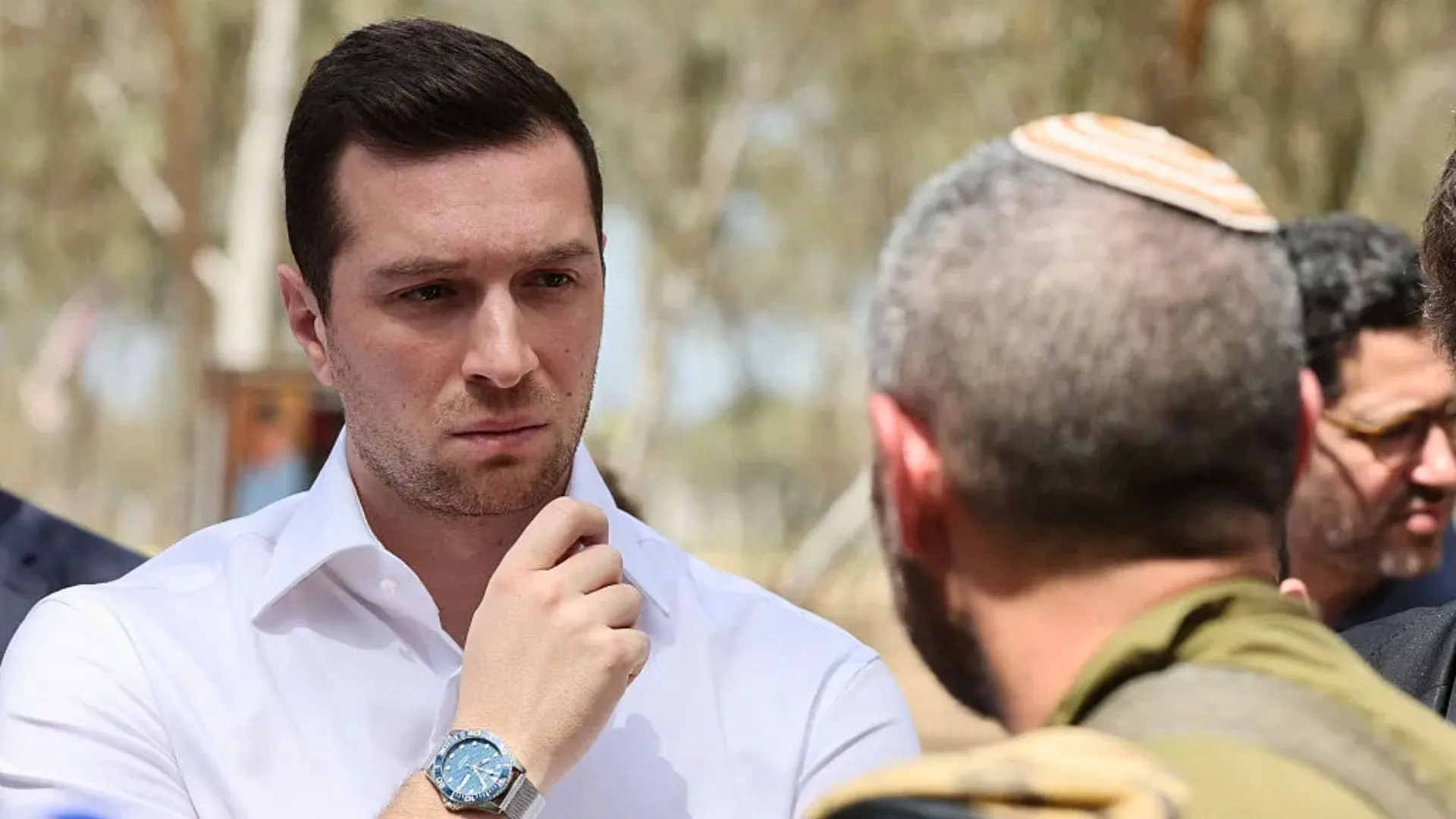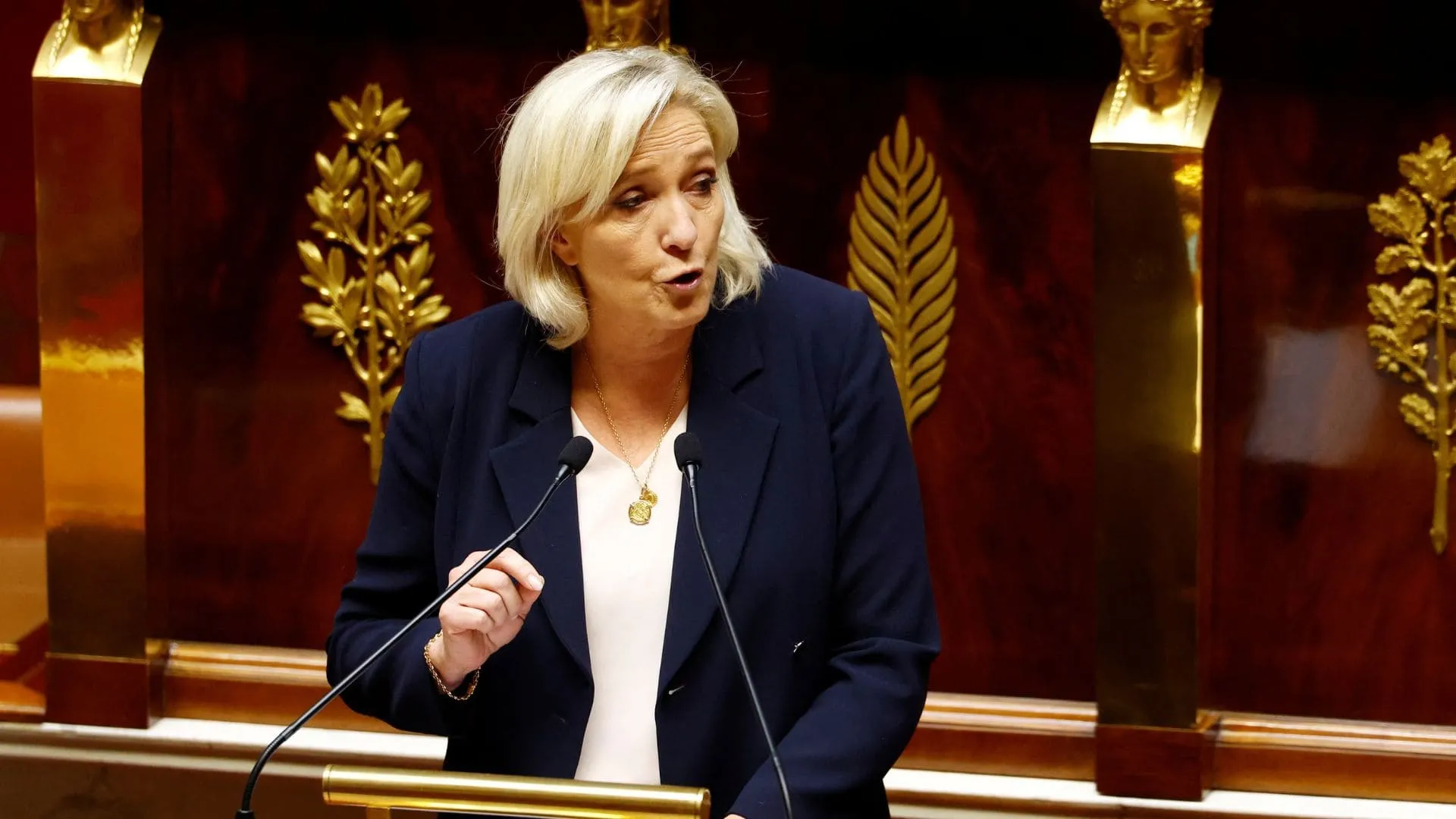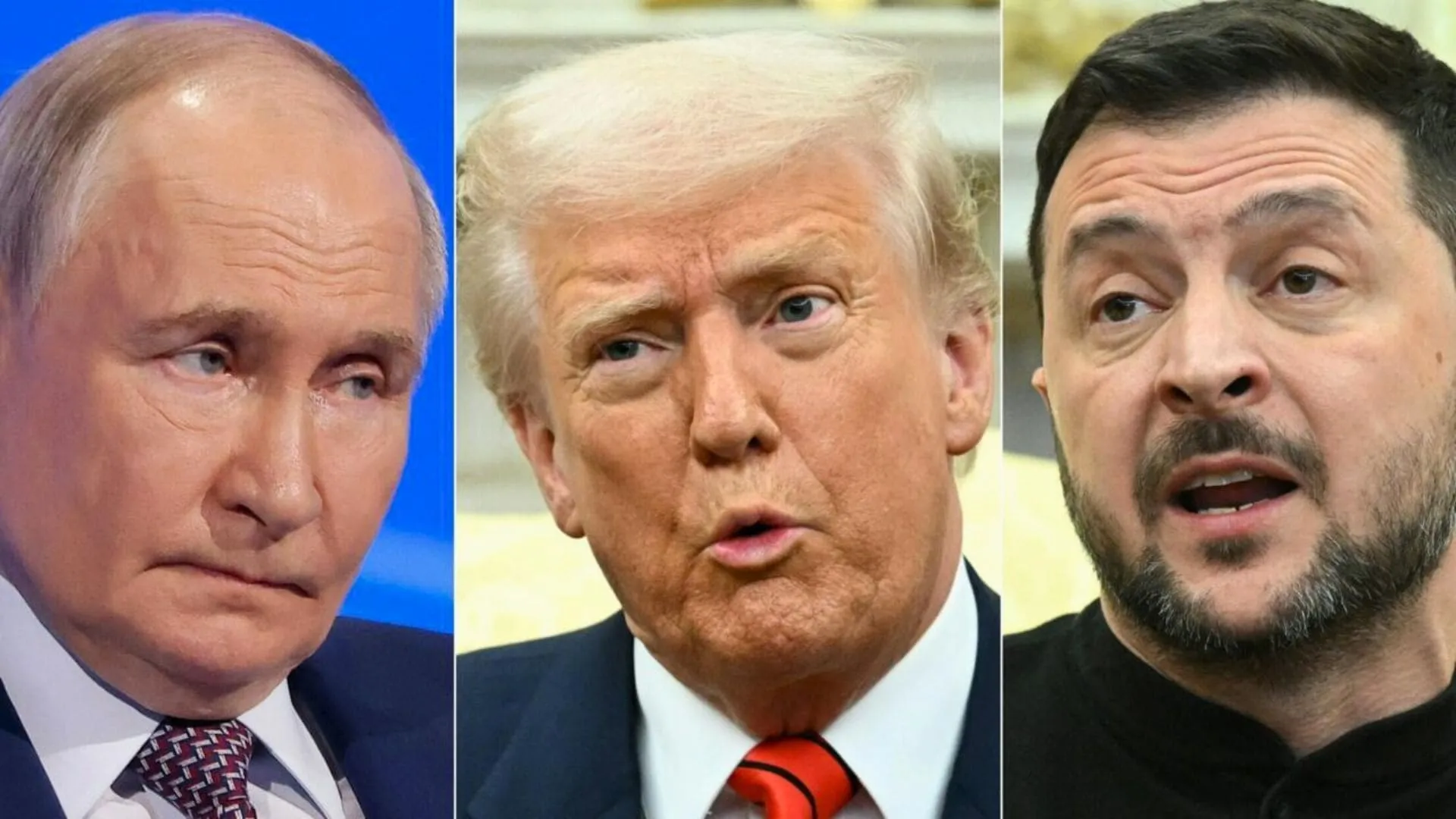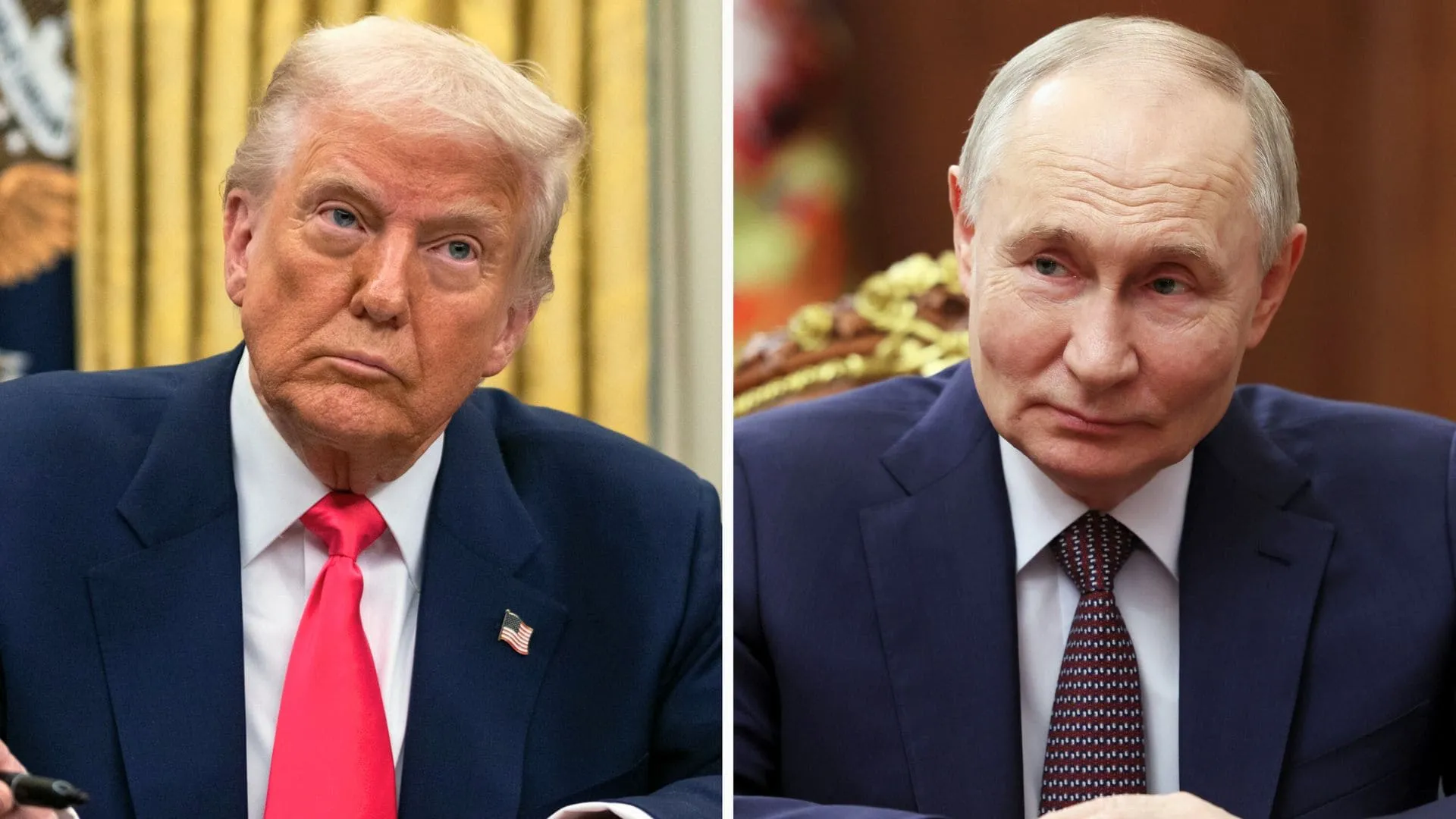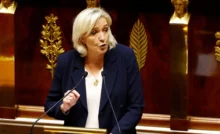The recent visit of Jordan Bardella, leader of France’s far-right National Rally (RN), to Israel has sparked mixed reactions. Attending an Israeli government conference on antisemitism marked a dramatic shift, considering his party’s controversial past. The National Rally, originally founded as the National Front by Jean-Marie Le Pen, has long been linked to antisemitism and Nazi collaboration. Bardella’s presence at the event signals a change in political alignments and raises questions about Israel’s evolving diplomatic strategy.
Bardella’s Presence and the Controversy
His participation in the conference marked a significant departure from the past, when far-right politicians were largely unwelcome in such spaces. During his speech, Bardella condemned antisemitism and anti-Zionism while emphasizing the need for unity against hatred. “In the face of the disturbing resurgence of anti-Jewish hatred throughout Europe and the world, and the face of terrorism that intends to destroy our lives and our values, we French believe more than ever in the imperative need for our nations to unite their voices and join forces in this fight,” he said.
Despite his remarks, many Jewish leaders remained unconvinced. Key figures such as Anti-Defamation League chief Jonathan Greenblatt and French philosopher Bernard-Henri Lévy boycotted the event in protest of Jordan Bardella’s presence. The backlash underscored lingering distrust toward his party.
His participation aligns with a broader effort to rebrand the National Rally. Traditionally, the Jewish community in France and beyond has viewed the far right with deep suspicion. However, Bardella and Marine Le Pen have worked to shift this perception. By moving away from the party’s antisemitic rhetoric and focusing on immigration and radical Islamism, they seek to reshape its image.
Reinforcing this shift, Bardella used his speech to attribute France’s rising antisemitism to mass immigration. “In some areas of the French republic, teaching the Holocaust has become nearly impossible due to the immigration policy pursued over the last 30 years,” he claimed. Additionally, he denounced what he called “the deadly honeymoon between Islamism and the extreme left.”
Israel’s Shift in Diplomatic Strategy
Israel’s decision to welcome Jordan Bardella reflects a broader shift in its foreign policy. Under Prime Minister Benjamin Netanyahu, the government has strengthened ties with far-right European parties. Rather than focusing on historical grievances, Israel now prioritizes shared views on immigration and radical Islam.
Defending Bardella’s participation, Diaspora Affairs Minister Amichai Chikli dismissed critics, accusing them of spreading falsehoods about Israel’s allies. Political analysts suggest that Netanyahu sees strategic advantages in engaging with European right-wing leaders who align with Israel’s stance on security issues.
However, this approach remains highly controversial. Jordan Bardella’s party still carries the legacy of Jean-Marie Le Pen, who infamously referred to Holocaust gas chambers as a mere “detail” of history. Moreover, Bardella himself has faced scrutiny for maintaining ties to the party’s past. In January, his eulogy for Le Pen praised him as a defender of French identity. Many questioned whether the National Rally has genuinely distanced itself from its extremist roots.
The timing of Israel’s engagement with Jordan Bardella is also significant. Some experts, such as journalist Pierre-Stéphane Fort, argue that Netanyahu’s government deliberately waited until Jean-Marie Le Pen’s death to open diplomatic channels with the National Rally. This strategy helped prevent the association with its founder from overshadowing new political alliances.
National Rally’s Quest for Legitimacy
For Jordan Bardella and his party, the visit serves as a strategic step toward legitimacy. The National Rally has spent years attempting to shed its extremist image. Receiving recognition from Israel strengthens this rebranding effort.
Although some French Jews appreciate the party’s firm stance on Islamism, skepticism remains widespread. The Representative Council of Jewish Institutions (CRIF) has reiterated its historical distrust of the far right. According to CRIF leader Yonathan Arfi, Bardella’s visit has done little to change that perception.
Jordan Bardella’s rapid political ascent underscores these shifting dynamics. Born in 1995, he joined the National Rally as a teenager and quickly climbed the ranks. By 2019, he had become one of the youngest members of the European Parliament. In 2022, he took over the party’s leadership from Marine Le Pen, marking a generational change. Unlike previous leaders, he has no direct ties to the Le Pen family, a factor aiding the party’s rebranding efforts.
Nevertheless, doubts persist. Earlier this year, Bardella withdrew from the Conservative Political Action Conference (CPAC) in the U.S. following backlash over a gesture by former Trump adviser Steve Bannon, which some likened to a Nazi salute. Incidents like this raise questions about how much the party has truly changed.
A Broader Political Reconfiguration
Israel’s willingness to engage with Jordan Bardella reflects the shifting landscape of global alliances. Benjamn Netanyahu’s coalition already includes figures like Itamar Ben Gvir, a politician once deemed too extreme for the Israeli military. This suggests a pragmatic approach, where ideological alignment on key issues outweighs concerns over past controversies.
Critics, however, argue that such engagement risks legitimizing political movements with troubling histories. Jordan Bardella’s visit to Israel is more than just a diplomatic meeting—it represents a fundamental recalibration of political alliances. As the National Rally continues its push for mainstream acceptance and Israel reassesses its strategic partnerships, the long-term implications of this engagement remain a subject of debate.


